Moore Family Crests. Which Moore is your family?
You searched for 'Moore', but there are 70 families with that name in our historic records. Do you know where your family came from, recognise the name of an ancestor or see your crest? If so, please click on your family from the list below..
SELECT YOUR CREST TO SEE AVAILABLE SILVER
AND REGISTER FOR SALE ALERTS
-
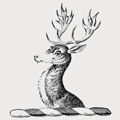 Gordon-Moore
Gordon-Moore
Mooresfort, co. Tipperary, Ireland :
"Audaces fortuna juvat"
Select
-
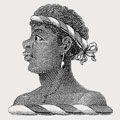 Gordon-Moore
Gordon-Moore
Mooresfort, co. Tipperary, Ireland :
"Audaces fortuna juvat"
Select
-
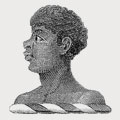 Lyon-Moore
Lyon-Moore
Robert, Esquire, of Molenan, co. Londonderry, and Cliff,…
"Duris non frangor"
Select
-
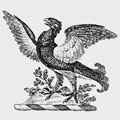 Moore
Moore
Baronet (extinct), of Fawley, Berkshire
"Nihil utile quod non honestum"
Select
-
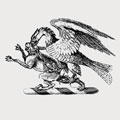 Moore
Moore
Stephen, Esquire, of Barne, Clonmel
"Vis unita fortior"
Select
-
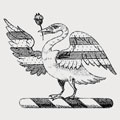 Moore
Moore
Joseph Hall, Esquire, Castleton, Derbysh., via Sheffield
"Mores hoc mutato"
Select
-
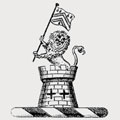 Moore
Moore
Sandon and Haddon, Hertfordshire and London
Select
-
 Moore
Moore
Thelwall, Cheshire
Select
-
 Moore
Moore
Walter Montagu, Esquire, J.P., of Wierton, Geraldine,…
Select
-
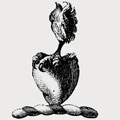 Moore
Moore
Select
-
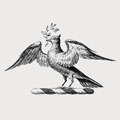 Moore
Moore
Select
-
 Moore
Moore
Select
-
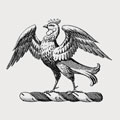 Moore
Moore
George Henry, Esquire, of Glenmark, Canterbury, New…
Select
-
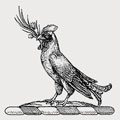 Moore
Moore
Langley Lodge, Gerard's Cross, Bucks, and Liverpool
"Aequabiliter et diligenter"
Select
-
 Moore
Moore
Select
-
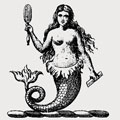 Moore
Moore
Wichford, Hampshire
Select
-
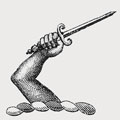 Moore
Moore
Moorehays, Collumpton, Devon
Select
-
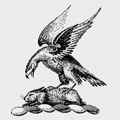 Moore
Moore
Shropshire
Select
-
 Moore
Moore
Rev William Prior Moore
"Vis unita fortior"
"Cum candore fortis"
Select
-
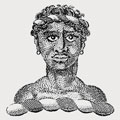 Moore
Moore
Moore Hall, co. Mayo, Ireland
"Fortis cadere, non cedere potest"
Select
-
 Moore
Moore
Frampton Hall, Lincolnshire
"Disce mori mundo"
Select
-
 Moore
Moore
Stockwell, Surrey
"Resolve well, persevere"
Select
-
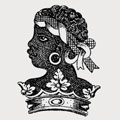 Moore
Moore
Ireland
"Fortis cadere, non cedere potest"
Select
-
 Moore
Moore
Kent
Select
-
 Moore
Moore
Tara House, co. Meath
"Durum patientia frango"
Select
-
 Moore
Moore
Baronet. (extinct), of Kersant, Berkshire
"Fortis cadere, non cedere potest"
Select
-
 Moore
Moore
William, Esquire, K.C., J.P., of Moore Lodge, Ballymoney,…
"Fortis cadere, non cedere potest"
Select
-
 Moore
Moore
William, Esquire, Moore Fort, co. Antrim, Ireland
"Fortis cadere, non cedere potest"
Select
-
 Moore
Moore
Sir Thomas O'Connor, Baronet., of Ross Carbery, co.…
"Fortis cadere, non cedere potest"
Select
-
 Moore
Moore
Sir John William, of 40, Fitzwilliam Square West, Dublin
"Fortis cadere, non cedere potest"
Select
-
 Moore
Moore
Bristol and Ireland
"Fortis cadere, non cedere potest"
Select
-
 Moore
Moore
Roscarberry, co. Cork, Ireland
Select
-
 Moore
Moore
Sir Thomas O'Connor, Baronet.
"Fortis cadere, non cedere potest"
Select
-
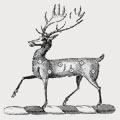 Moore
Moore
Ipswich, Suffolk
Select
-
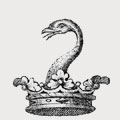 Moore
Moore
Devon, Hampshire and Surrey
Select
-
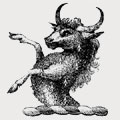 Moore
Moore
Newington, Surrey
Select
-
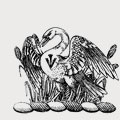 Moore
Moore
William Middleton, Esquire, J.P., D.L., of Grimeshill,…
"Animum rege"
Select
-
 Moore
Moore
Grimeshill, Westmoreland
"Animum rege"
Select
-
 Moore
Moore
Northaston, Oxfordshire
Select
-
 Moore
Moore
Grantham, Lincolnshire
Select
-
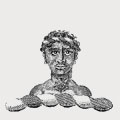 Moore
Moore
Count Arthur John, Kt. Commander of the Order of Gregory…
"Fortis cadere, non cedere potest"
Select
-
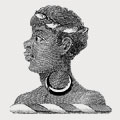 Moore
Moore
Kent
Select
-
 Moore
Moore
Canterbury
Select
-
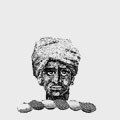 Moore
Moore
The late Sir John (killed at Corunna)
Select
-
 Moore
Moore
Select
-
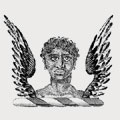 Moore
Moore
Frederick, the Hollies, Alcester Road, Kingsheath,…
"Malo mori quam foedari"
Select
-
 Moore
Moore
Edmund F., Esquire
"In Deo confido"
Select
-
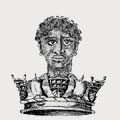 Moore
Moore
Joseph Henry, Esquire, A.I.M., of 63, Eccles Street,…
"Frango dura patientia"
Select
-
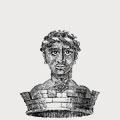 Moore
Moore
Charles, Esquire, J.P., of Mooresfort, co. Tipperary
"Fortis cadere, non cedere potest"
Select
-
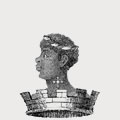 Moore
Moore
Hon. Charles, of Moore Court, Springwood, Blue Mountains,…
"Perseverando et cavendo"
Select
-
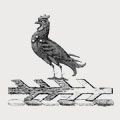 Moore
Moore
Blandford Forum, Dorset
"Amore floresco"
Select
-
 Moore
Moore
Appleby Parva, Leicestershire
"Non civium ardor"
Select
-
 Moore
Moore
George John, Esquire, J.P., D.L., of Appleby, Atherstone
"Non civium ardor"
Select
-
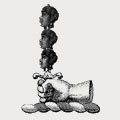 Moore
Moore
Cremorgan, Queen's Co., Ireland
"Semper fidelis et audax"
Select
-
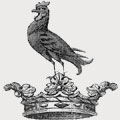 Moore
Moore
Ballina, co. Mayo, Ireland, and Alicante, Spain
"Fortis cadere, non cedere potest"
Select
-
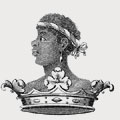 Moore
Moore
William and Edward Moore.
"Audaces fortuna juvat"
Select
-
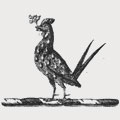 Moore
Moore
William Baker Moore
"Non civium ardor prava jubentium"
Select
-
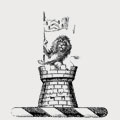 Moore
Moore
Francis Moore
"Toujours prêt"
Select
-
 Moore or More
Moore or More
Balyna, co. Kildare, Ireland
"Conlan a bu"
"Spes mea Deus"
Select
-
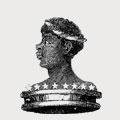 Moore-Brabazon
Moore-Brabazon
John Theodore Cuthbert Moore-Brabazon
(1st Baron Brabazon…
Select
-
 Moore-Brabazon
Moore-Brabazon
John Theodore Cuthbert Moore-Brabazon
(1st Baron Brabazon…
Select
-
 Moore-Carrick
Moore-Carrick
Corswall, Scotland
"Duris non frangor"
Select
-
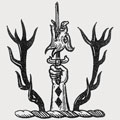 Moore-Gwyn
Moore-Gwyn
Formerly Moore, Joseph Edward, of Dyffryn, Neath, Glamorganshire,…
"Vim vi repellere licet"
Select
-
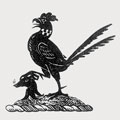 Moore-Gwyn
Moore-Gwyn
Formerly Moore, Joseph Edward, of Dyffryn, Neath, Glamorganshire,…
"Vim vi repellere licet"
Select
-
 Moore-Hodder
Moore-Hodder
Hoddersfield, co. Cork
Select
-
 Moore-Hodder
Moore-Hodder
Hoddersfield, co. Cork
Select
-
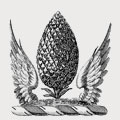 Parkin-Moore
Parkin-Moore
William, J.P., Whitehall, Mealsgate, Carlisle :
"Aut nunquam tentes, aut perfice"
Select
-
 Parkin-Moore
Parkin-Moore
William, J.P., Whitehall, Mealsgate, Carlisle :
Select
-
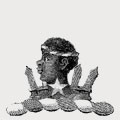 Streatfield-Moore
Streatfield-Moore
Alexander M'Neill, Esquire, J.P., of Woodcock Hill,…
Select
-
 Streatfield-Moore
Streatfield-Moore
Alexander M'Neill, Esquire, J.P., of Woodcock Hill,…
Select
Moore
More Family History
Burkes Landed Gentry (1879 edition) in the entry for the family of More of Linley states that "this is a family of great antiquity, deriving it's name from the paris of More in Shropshire."
"Richard (or, according to CAMDEN, Thomas, de la More came from Normandy with Duke William and lost his life at the Battle of Hastings, leaving a son, Sir Thomas de la More, who. to use the words of CAMDEN, "builte faire houses at Launceston, in Cornwall; Halton, in Cheshire; and More, in Shropshire, giving to the latter place his paternal name." He married Constance, daughter of Robert de Umfrevil, Lord de Tours and was ancestor of the Mores of More, co. Salop."
"Sir Thomas More, the Chancellor; the Moores, Earls of Mountcashell and the Moores of Barn derive from collateral branches of this family."
The More family of More were thus the senior branch of the family and Burkes Landed Gentry shows that they remained in possession of estates at More, Linley and Larden until at least the second half of the 20th century.
The branches of the family that settled in Ireland founded several families under various spellings of More and Moore.
See also Martyn Downers blog post "Moor than obvious" on 24 August 2012 www.myfamilysilver.com/blog on the use of the head of a moor in heraldry. The heralds have always enjoyed a pun (known as cantling in heraldry) and moors and moorhens are often incorporated in the arms of families whose names include "Moor" or "More".
Downer makes the point that the use of a "Moor" was traditionally a nod to the crusades and therefore, in the words of Sellar and Yeatman, "a good thing" and often predates the slave trade ("a bad thing").
SNBM